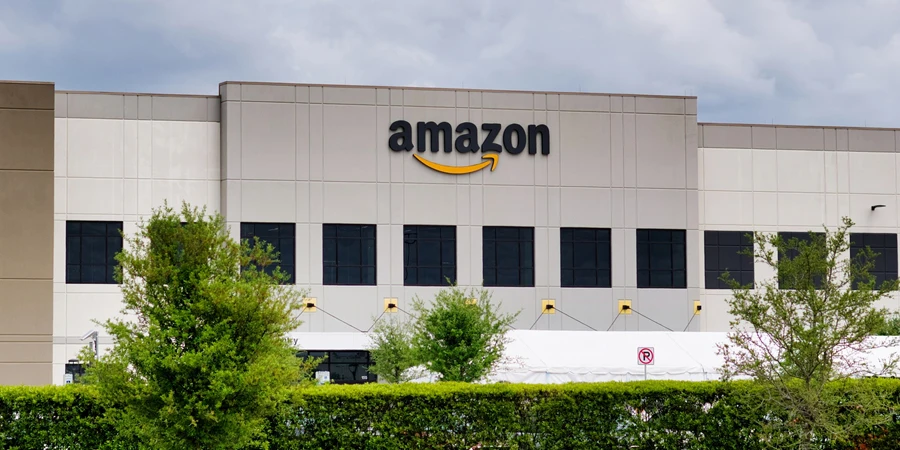US
Amazon: Projected Dominance Amid Competitive Growth
According to a prediction by eMarketer, Amazon is set to claim 40.4% of US retail e-commerce sales in 2024, reaching an estimated $492billion. Despite its dominance in e-commerce, Amazon’s sales will only account for less than7% of total US retail revenue. In the coming two years, nearly 80% of product categories on Amazon are expected to see market share growth, except for home improvement and automotive due to intense competition. Walmart, however, is outpacing Amazon with a approximately 14% growth rate in e-commerce sales, mainly due to its success in the grocery sector, potentially challenging Amazon’s market position.
Amazon Live: Enhancing Interactive Shopping Experiences
Amazon Live is set to launch a Free Ad-Supported Streaming (FAST) Channel on Prime Video and Amazon Freevee, featuring popular creators and brand content. This new channel will include interactive live shopping experiences, allowing viewers to browse and purchase featured products in real-time through mobile integration. This initiative underscores Amazon’s ongoing success in live shopping, contributing to a significant viewership across the US and India in 2023.
Amazon Expands Smart Grocery Cart Technology
Amazon has introduced its smart grocery carts, known as Dash Carts, to other retailers, leveraging technology that enhances shopping efficiency by allowing customers to scan items directly into their carts and bypass checkout lines. Initially launched in 2020 at Amazon Fresh stores and later at select Whole Foods locations, these carts utilize computer vision and sensors to automatically identify items placed inside. The technology dynamically updates the total price as items are added or removed. This move follows Amazon’s strategy of expanding its cashier-less “Just Walk Out” technology to third-party retailers, despite scaling it back in its own stores.
TikTok Shop Excels in Customer Retention
TikTok Shop excels in customer retention, outperforming platforms like Temu, Shein, and Walmart. According to Earnest Analytics, approximately 27% of TikTok Shop shoppers return within several months of their first purchase, higher than competitors except Amazon, which retains about 35% of customers in the same timeframe. TikTok’s large user base provides a significant potential customer pool.
The platform launched during key promotional periods, featuring substantial discounts and rewards for sellers who post appealing shopping videos. Currently, over 81% of TikTok Shop’s revenue in February came from repeat customers, a notable increase from nearly 70% in November. The platform’s advanced recommendation algorithm effectively promotes repeat purchases by suggesting videos related to products users have previously bought.
TikTok: High Customer Retention and Privacy Concerns
TikTok Shop excels in customer retention, with approximately 27% of shoppers re-purchasing within several months of their initial order, outperforming platforms like Walmart, Temu, and Shein. Despite this, concerns over privacy policies deter some US shoppers, with 84% of survey respondents having not purchased from TikTok Shop in the past six months. Concerns include sharing payment information and an abundance of unverified third-party sellers. The platform’s sales are predominantly driven by repeat customers, with 81% of February’s sales coming from returning users.
Globe
Zalando: Expanding E-commerce Operations Across Europe
Zalando’s e-commerce operations system, ZEOS, has partnered with European market integrator Tradebyte to expand into over 90 international e-commerce channels. This strategic alliance aims to simplify multichannel sales for fashion and lifestyle retailers in the Benelux economic union and beyond. By linking with Tradebyte, ZEOS will enable retailers to tap into leading e-commerce platforms, boosting efficiency and profitability in cross-border e-commerce operations.
Mexico: Emerging Trends in Online Shopping
Mexico’s 11th annual Hot Sale is set to drive significant online consumer activity from May 15 to May 23, according to a study by the Mexican Online Sales Association (AMVO). The event, which showcases consumer preferences for fashion, electronics, and travel, is expected to see nearly 70% increase in average purchase value compared to the previous year. Hot Sale has evolved into a major e-commerce event in Mexico, growing 75-fold in scale since its inception in 2014.
AI
AI Advances Parkinson’s Disease Detection Through Brain Waves
An innovative AI system developed by researchers in the UK, Denmark, and Australia can now detect early signs of Parkinson’s disease by analyzing brain wave recordings from electroencephalograms (EEGs). This system marks a significant improvement in diagnosing the progressive neurological condition, which affects motor control due to brain cell damage. Currently supporting over 10 million people globally, Parkinson’s diagnosis has traditionally relied on physicians’ evaluations and medical tests. This new AI model offers a more precise and earlier diagnosis by identifying abnormalities in EEG scans, with accuracy rates reaching 95.79% in Iowa and 99.83% in San Diego datasets. The technology not only enhances patient care but also holds potential for application in other medical analyses, such as heart monitoring and muscle stimulation.
Generative AI Growth in Asia and Oceania
Spending on generative AI software in Asia and Oceania is projected to exceed $18 billion by 2028, driven by the adoption of local solutions, as reported by Omdia. This surge is largely fueled by regional technology vendors developing and deploying their own large language models tailored to local languages and cultural contexts. Companies across China and South Korea, like China Mobile and KT, are creating proprietary solutions that cater specifically to local needs, supporting a vision for fully differentiated generative AI products and services within the region.
Google Aids National Guard with AI for Disaster Response
Google has partnered with the National Guard to provide AI tools for analyzing disaster area images, enhancing the speed and effectiveness of responses. Developed by Bellwether, a group within Google’s Alphabet-owned innovation lab “X,” this technology compares aerial photos with satellite imagery to identify key infrastructure elements. This AI solution will be deployed in preparation for the dry season, demonstrating a significant application of Google’s image-recognition technology in critical emergency management.
Virginia’s Data Centers Drive Demand for Coal Power
Data centers in Northern Virginia, processing nearly 70% of global digital traffic, are driving a renewed demand for electricity from coal-flamed power plants. Despite the regional push towards clean energy, the existing and planned data centers necessitate continuous operation of older coal plants, complicating efforts to achieve clean energy goals. This situation highlights the complex balance between technological infrastructure growth and environmental sustainability in one of the world’s largest internet hubs.








